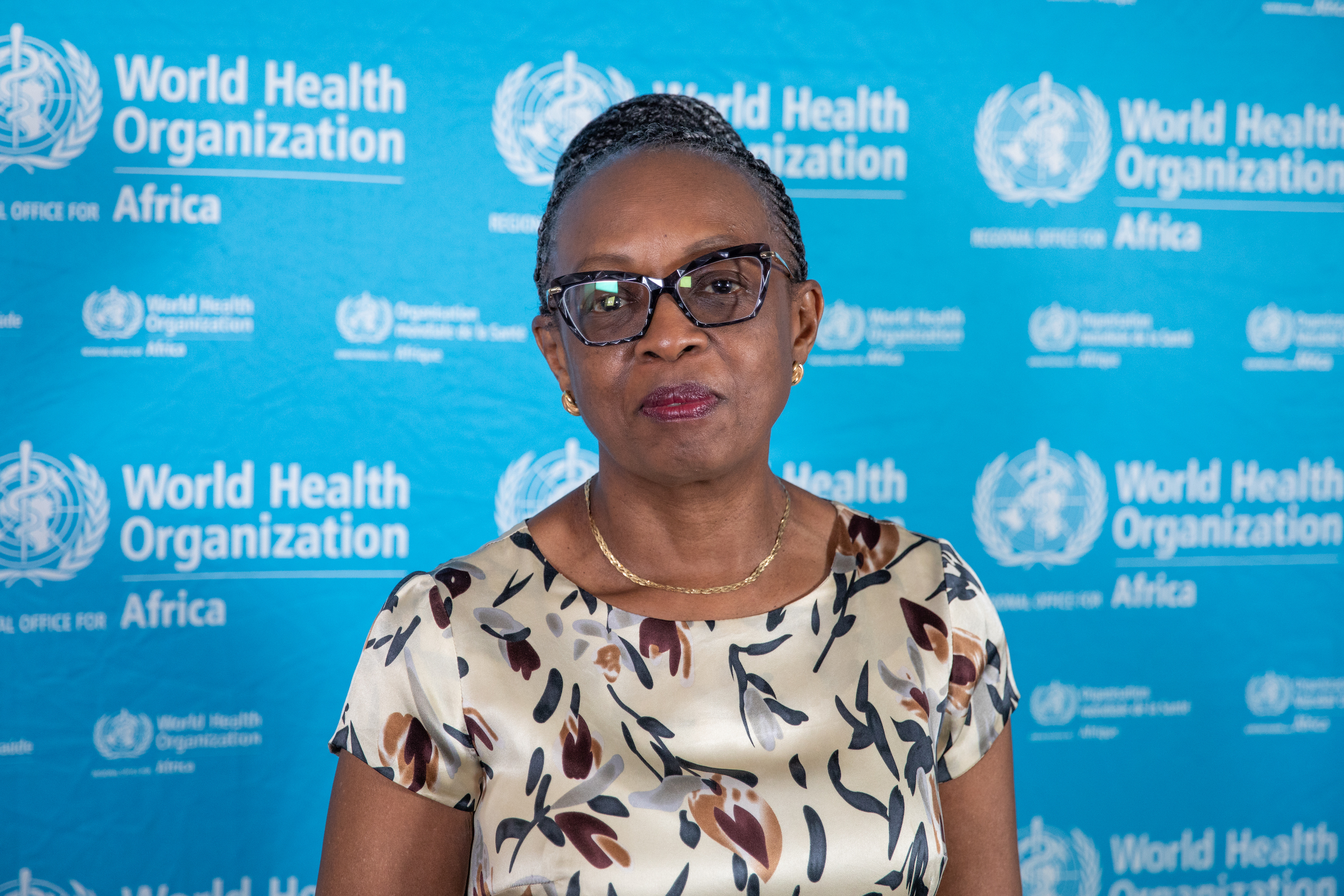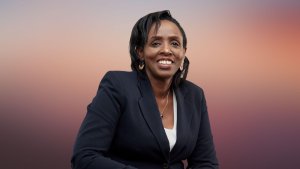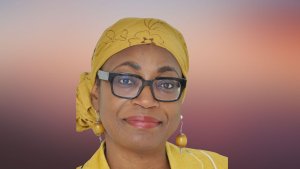In this interview, Dr. Folashadé Soulé and Dr. Camilla Toulmin speak with Dr Matshidiso Moeti, the World Health Organisation Regional Director for Africa - and the first woman to occupy this position – on COVID-19 health mitigation strategies in Africa and the role of the WHO Regional office for Africa, equitable access to vaccines, health policies African governments should adopt, and the future of global health governance. Dr Moeti is a medical doctor and public health expert, with more than 40 years of national and international experience. She has worked with the WHO Regional Office for Africa, where she has held several senior positions, since 1999. Dr Moeti has led a Transformation Agenda which includes improved response capacity to health emergences like COVID-19 pandemic and Ebola virus outbreak. Dr Moeti also led WHO’s “3 by 5” Initiative in the African Region, which aimed to expand access to antiretroviral therapy. Prior to joining WHO, Dr Moeti worked with UNAIDS as the Team Leader of the Africa and Middle East Desk in Geneva, with UNICEF as a Regional Advisor, and with Botswana’s Ministry of Health in various capacities.
1 - While the continent has been praised to some extent for taking early health measures to prevent the rise in COVID-19 cases, several African countries are now facing a second wave of infections and rise in deaths from the COVID-19 virus and its variants. It is said that mortality rates in more than 20 African countries are higher than the global average. How do you assess and compare overall the mitigation strategies that were taken by African governments and communities to address the pandemic during the first and second waves?
The first wave was very much around setting-up the capacity to respond, starting from a situation that really reflected the resource and capacity gaps of health systems in most African countries in general. There was a little bit of an advantage: in many African countries, outbreaks are quite frequent and at the time that COVID-19 was starting, we were responding to an Ebola outbreak in the DRC. Most countries had put in place checking of passengers in airports, and some countries even had land and border checking points. So, it was adjusting something that was somewhat already in place to COVID-19.
In the first wave, diagnostic capacity was virtually non-existent for this coronavirus in most countries. Fairly quickly, two regional centres in South Africa and Senegal could start testing for this virus. There was a lot of work done to set-up the basic capacity, buying the equipment, the supplies, and training people. This was established initially in the capital cities and then progressively expanded to other localities within countries so that at least they could detect the virus. Then followed the work of setting-up other public health interventions, capacity, and infrastructure. This was all done in the first wave.
There was work as well to set up basic treatment capacity. But there was a big concern around the lack of ventilators. If you look at the number of ventilators per capita in Africa, it is way below the number in many other countries. Procurement of basic equipment like that was quite a challenge. Putting in place access to oxygen was also a challenge as it is not very frequently found in African countries.
Then there was the process of getting the population informed, because they play a very critical role. This was a challenge from the beginning. I think we need to do a lot more work for it to be very clear to all of us: at the end of the day, an outbreak like this starts and stops with people, and it is important to find the mechanisms and platforms that are in place in countries to engage people immediately, get their input into what’s being planned, and prepare immediately. That is something that we need to better develop as it was incorporated progressively.
At the beginning there were many lockdowns. Governments decided to use these measures, understanding that this would give them time to progressively build up the public health measures. About half the countries put in place pretty comprehensive control measures. Others had partial lockdowns and border closures to protect themselves from imported infections.
Restrictions in the beginning were in some cases drastic and there is not yet a lot of investment in social safety nets: if you are under lockdown, you can’t go to your job, to the market, to earn your living. Helping people to be able to cope happened in some of the middle-income countries and in some low-income countries. But in the future, safety nets really need to be built into resilience – meaning health systems need to be able to detect and continue providing services despite the pandemic. One of the lessons learned is that we need to look at how resilient are other aspects of development, including social safety nets in the context of the high levels of poverty in the region.
2 - So how do you think these measures are being able to address the second and maybe third wave that is hitting the continent harder than the first wave?
This is one virus where we’re having to learn all the time, about new clinical manifestations and therefore countries’ systems need to be pretty nimble in updating their approaches. We have to update the guidance so that everybody knows that people who have this disease, not only have their lungs not able to function because of inflammation and therefore need oxygen, but that you get other manifestations as well, that require you to give them different treatments, to give them anticoagulants and to be able to adapt pretty quickly.
We’re seeing in a few places, like South Africa, a very elevated case fatality rate. It has partly to do with increases in cases and partly to do with the capacity of the health system. We also need to understand the role of the new variants in terms of severity of the disease.
So far, our understanding has been that the new variants of the virus are more transmissible. It does not necessarily lead to more severe manifestations of the disease or higher mortality rates, but we definitely need to understand the virus more.
One of the key aspects of the second wave is that they are coming in the context of the necessity of opening-up economies and reverting to some sort of version of normal life around economic activity and education.
We are also seeing fatigue on the part of the population to carry on with these measures of wearing a mask and keeping a distance after such a long time. Where I live here in Brazzaville, what seems to be happening on the street, in the supermarket, in town, is the challenge to sustain people’s efforts at the individual level. It’s very visible that people are tired: more and more people on the street are not properly covering their nose and mouth. More and more people are not even wearing a mask at all. One of the aspects that needs to be really reinforced is first of all, research, to know how and what people are feeling, and thinking. And what problems they’re encountering in sustaining this, because we cannot assume that every household is able to buy a mask and keep either buying masks or being able to wash them - when they sometimes struggle to have water in the house to cook food and water for people to drink. More needs to be invested in this: understanding what’s happening with people and helping them to sustain these efforts.
We talk a lot about a “whole-of-government” approach. There is a need for the different sectors to be talking to each other, to see where to strike a balance between opening-up, enabling people to go to work by public transport, and making sure that this happens safely.
We are not only dealing with the second wave, we’re also making sure that Governments and other partners in the private sector are able to provide other health-care services for people that also took a big hit. Family planning, lots of unplanned pregnancies, all sorts of illnesses, HIV treatment, chronic treatments, even child immunization has dipped. There is a need to now sustain this and also work on the public health measures and reinforce them further. Then of course, very importantly we must work on preparing for and delivering the vaccine. It’s going to be challenging to do all of this at the same time, but we must help the countries to be able to find the most appropriate ways of sustaining all of this.
Something that has been very positive in Africa as well, is the work coordinated by the African Union in which we have participated very actively. We co-chair the steering committee of the Africa CDC that is looking at the response in Africa. So, mobilizing African action together. At the sub-regional level, with regional economic communities, like the Southern African Development Community, we have also worked together to address some of the cross-border risks of transmission and to develop protocols for how to deal with transport and travel of people.
3 - Some doubts have been cast on whether the continent has effectively been less exposed to the pandemic. Some news outlets suspect the number of COVID-19-related deaths have been statistically under-reported, and that the actual number of deaths might be much higher. At a more scientific level, some studies on antibodies testing have published preliminary results showing in Nairobi, for instance, a higher rate of people who have been infected by the virus. Based on the information that you have in hand, what do these studies reflect on the real infection rates? Does it for instance mean that there is indeed a higher number of infections which have gone under the radar, due to a lack of testing, and that there are many more asymptomatic cases than we think?
African countries faced several issues in responding to the pandemic. One of the biggest challenges was due to the distortion in the global market for certain supplies which continues up to today, including difficulties in obtaining all the supplies and equipment needed to be able to do testing at certain levels in a sustained way. It needed us in WHO, for example, to set-up a global platform with UNICEF and other agencies, to pool the procurement process, particularly for low- and middle-income countries, to pool the money together and procure some of these items for them.
Testing has been a challenge. About 18 low-income African countries have never been able to test at the level that WHO recommends of 10 tests per 10,000 people. There has always been a challenge in having enough supplies. Some countries, for instance, tried to use testing machines that they had for their tuberculosis programmes. However, Governments in some of the countries where the companies that produce these kits are based, prohibited exportation of the kits so they weren’t able to be used for testing.
Some of the studies that are coming out on antibodies are now indicating that in some places the virus has been circulating at higher rates. Even the ability of countries to get out there and detect asymptomatic cases has been challenging. So, certainly there’s a certain underestimation of the cases we think, and probably also the mortality. In some countries they have undertaken testing post-mortem to see if there’s a correlation.
However, with influenza there is a kind of proxy or indicator with some of the same symptoms as COVID-19, so our influenza surveillance will be picking up many, many more cases than initially picked up. We have had that going in a few countries. But it does not indicate that there’s a massive number of African people dying. Speaking as an African, not necessarily as a public health official, we know that death in African communities is a significant event. I think we would have been able to detect if there was a much higher mortality rate. In our reporting of cases, there is certainly a rising number of infections and this reflects an underestimation of the situation because the testing has been so problematic in many countries.
4 - The continent is also facing a vaccine shortage compared to other continents. Vaccines provision are progressively being secured via the COVAX initiative and shipment is progressively being carried out. But African policymakers and health experts are urging for more equitable distribution in a context where some vaccines producers are facing shortages and some developed countries are being accused of “vaccine nationalism”. How can an initiative like COVAX ensure not only that vaccines are secured but also equally distributed to developing countries in such a challenging context?
This is a highly complex and very important issue of global solidarity which I can only describe as a work in progress. First of all, I think that setting-up COVAX was learning from the past. In the past with the avian influenza pandemic, there was a situation of distortion and acquiring supplies late was a real disaster. By the time African countries got those supplies, the outbreak was over. So having the forethought to set up a platform and procurement, and promote this principle of global solidarity is a very good start which progressively will work better. COVAX has engaged even some high-income countries, as well as the low-income countries that are eligible for support, and middle-income countries.
This is something that we need to pursue in a common understanding that as long as you get delays in improving the situation of risk in one part of the world, you will always have to some degree to be keeping your own economy semi-locked, restricting movement, restricting interaction. So, it could be a win-win situation if there was some rational way of sharing the disadvantage equitably between countries. We’re not there yet.
Those countries that have reserved supplies in advance to cover multiple times for their population are hitting now against the brick wall of production capacity. Companies that promised to deliver at a certain rate just don’t have the capacity. Now they’re getting into quarrels with their clients who are now going to be restricting access to others, which is something that had been agreed in principle would not happen.
I think we have a lot of lessons to learn from this experience, but I do think the principle is still very, very important to pursue. Coming to COVID-19, my own position is to say, let us observe this unfortunate tendency, let us comment on it and regret it. And then let’s find a way of helping African countries to constructively get on with planning and delivering the vaccines that they can obtain. And I acknowledge also that all the effort in developing vaccines, delivering and rolling them out worldwide at such a speed was hyper ambitious.
We also need to give ourselves a reality check so that we manage the expectations, the frustrations, the emotions, and help everybody to focus on the task at hand, which is to develop a plan to the best of your ability to what you must do as a government, to be in an absolute state of readiness and engage on what is your role.
Countries have a vital role to play: if we were to put money into a common pot, I think it is for donors to contribute what they can, but I think it’s also for our countries to go looking and contribute to the degree that they can, because it also gives them more of a say in the process. I think it’s very important to have a sense of agency. I’ve been very encouraged by the position coordinated by the African Union and African countries in looking for financing, including for soft loans in a partnership with Africa Ex-Im Bank and the World Bank to engage suppliers. We’re working with them to make sure that it works in a synergistic way with COVAX so we’re not competing for the same suppliers and vaccines.
I think we have to acknowledge that the COVID-19 pandemic has become an acute political issue in all countries. Sometimes, unfortunately it gets translated into a party-political issue. Some want to be seen to be doing the best for their people and therefore that weakens engagement in a global solidarity principle. There has been a lot of work in COVAX to promote donation of some of the early supplies from some of the high-income countries. We’re still talking, but it’s not translating concretely. All I can say is that it’s a strong principle to pursue. We must work on it practically and I’m hoping that the next time something like this happens (hopefully not for a long time), that Governments will be able to explain to their own citizens: we may be wealthy, but we have seen lots of people dying, so let’s deal with ourselves and deal with the rest of the world.
5 - Considering that the pipeline for access to vaccines will become more secure over time, another challenge that many African countries will be facing is that of local willingness to get vaccinated. Some leaders have said that community engagement is key in this process. Now, Afrobarometer, has been conducting surveys lately on the perceptions of African citizens on their government’s response to COVID-19 and on their interest in getting vaccinated. First outcomes of the survey showed that in Liberia, for instance, 66% of respondents said that they were somewhat unlikely or very unlikely to get vaccinated and only 20% trusted the government to make sure the COVID-19 vaccine is safe. Results from other countries will follow but given the historic distrust towards vaccines among large parts of African populations, what are the policies and actions to be carried out for better community engagement?
I think that’s a very important aspect of the work that needs to be done and which is starting to be done now. I think it really requires ways of engaging communities that are based very much at the grassroots, the networks, and groups that they associate with. Organizations, such as churches, religious leaders and networks, women’s groups. The way to go is to work with these groups, their leadership, get their engagement and work through them and find ways to simplify the message and provide people with this information. We need to base this on the starting point that you’re bringing your most precious, parts of your family to line up for the vaccine. It’s about helping people to trust and get over the message at the beginning of the pandemic about Africans being used as Guinea pigs, for something that they’re not going to benefit from. We’ve seen that work while dealing with Ebola outbreaks, helping people understand why it’s important. We need to find the appropriate and correct way to get the messages across through the right channels.
6 - Before we wrap up, many have called for the pandemic to be considered as an opportunity to “build back better”. How can African governments use the crisis as an opportunity to invest in better health policies?
There are many things that we have learned. First of all, there is a need for more investment in health. If we look on average across the Region, capital investment in health in Africa is still too low. What’s the most effective way to invest your money so that you have resilience in building up your system? Rather than needing to appeal to the international community in a crisis, to put in money for you to deal with an outbreak, it’s important to build this resilience into your system by progressive investment in those parts which are going to help you to be able to deal with a crisis. The risk of an outbreak, the ability to detect it early and the ability to contain it are key. It speaks to investing in key components of your health systems, and then making sure that they deal with the risk of pandemic outbreaks at the same time as delivering health care for people with HIV, or with diabetes and chronic diseases, immunization for children.
We pay a lot of attention to external funding. We put a lot of emphasis on the money that we are getting for HIV from the Global Fund, for vaccinations from GAVI. Very often putting these resources together in a way that works most efficiently is a challenge. There are lots of inefficiencies in this approach to health investment.
Secondly, on scaling-up the reach of essential health services so that you have not just primary care for treating disease, but are able to detect an outbreak; these basic investments in the peripheral system and in the different components of a health system are important.
One of the lessons we’ve also seen is to do with the potential of information technology, to be able to get over some of the distance gaps in our systems, so that it’s not necessary to be physically doing things you can work through e-health. For instance, you can pass on information, improve your surveillance pretty quickly, and make sure that the service delivery is happening, collecting and analysing data so you know better what’s going on.
African countries have to invest more in human resources across different competencies, including making sure there are enough nurses, and for them to have a decent working life – to take time off and be trained properly. This is also true of course for doctors, and other professionals who need to be in place. We need also to look at the disease interface between animals and people, working on agriculture, animal health, human health, exchanging data, so that when there’s an outbreak of a certain type, starting among animals, that there is an appropriate response.
Also, let’s work across sectors. We have seen with the COVID-19 outbreak that you need to be looking at risks to do with water and sanitation and being able to control access to water for hygiene purposes, which has been a big challenge in some African countries. Putting all of that together is very important. We also need to pay more attention in terms of accountability, including social results, in terms of what to do with support from donors and what we do with our own domestic resources.
Even if our continent is highly dependent on international support, we should still spend more of our own money as African countries on health. I think that we could get more value for this investment, if we really make the accountability system more robust.
Finally, I do think that there needs to be more investment in research and innovation in our countries so that we can develop indigenous African capacities.
7 - The pandemic has demonstrated that multilateralism is key to address global challenges, but it has also showed that effective actions by multilateral organisations can be hindered by politicization by some of its member states, and internal constraints for organisations like the WHO, such as insufficient funding. How does this pandemic offer an opportunity for the reform of global health governance? And what will, in your view, be the future of multilateralism after COVID?
The pandemic demonstrated quite dramatically that multilateralism is challenged. If you look at the responsibilities and the role of the WHO, I think it has demonstrated that this should be a mutual responsibility; first, between WHO and Member States, and second engaging other key players who are working on other aspects of global health and global health security.
We need an architecture that enables WHO to play its role of leading, coordinating, and being custodian of the International Health Regulations. The rules need to be constructed in such a way as to enable WHO to carry this out. There should be clear definition of procedures, and sanctions, if Member States do not comply and also incentives: what would make you open your country up for scientists from outside to come in and examine what might be starting, before it blows out of control? I think this is important. Resourcing is also very important.
Other entities matter too. We’ve seen that the private sector’s role in response to the pandemic has been absolutely crucial. If you look at the private sector’s role in the development of key tools, vaccines, and so on, there’s been a lot of negotiation and putting in place. The idea of sharing intellectual property has been very much moving back and forth - some have embraced it and many have not. There are many lessons learned from this experience that will encourage reflection.
One hopes that the global political situation will enable that to happen. – and it’s a challenge. I think we have to acknowledge such challenges today. I think what is important as far as multilateralism is concerned is that we know countries are very different in terms of influence internationally. I think it’s very important to have a balance by different countries. The multilateral system should facilitate this equity and encourage more countries to invest in these multilateral processes, invest their time, and their resources as well: if they feel that there is a balance in influence between different regions, and between different continents. Our interconnectedness is our shared vulnerability, and the world is only getting more and more interconnected.








